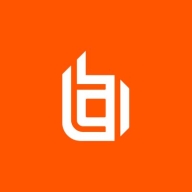


Microsoft Remote Desktop Services (RDS) and BeyondTrust Privileged Remote Access (PRA) compete in the remote access solutions category. Microsoft RDS generally has an advantage in cost-effectiveness, while BeyondTrust PRA stands out due to its advanced security features.
Features: Microsoft RDS integrates well with Windows environments, offers simplicity, and supports existing Microsoft infrastructure. BeyondTrust PRA provides robust security features, advanced access controls, and extensive options for securing privileged access.
Room for Improvement: Microsoft RDS could enhance performance in high-latency situations, improve security measures, and bolster its features for non-Microsoft environments. BeyondTrust PRA may benefit from a more intuitive setup process, better scalability options, and enhanced user-friendliness.
Ease of Deployment and Customer Service: Microsoft RDS is noted for straightforward deployment in Microsoft-centric setups but may require skilled IT support for some issues. BeyondTrust PRA has a steeper learning curve but offers very responsive and efficient customer service.
Pricing and ROI: Microsoft RDS is appreciated for lower setup costs, making it cost-effective for organizations using Microsoft products. BeyondTrust PRA is more expensive but offers significant value due to its superior security features, enhancing the protection of sensitive data.
Everything we've gained from it makes my job easier day after day, and I see value in it as an engineer.
Importantly, when someone leaves the company, it helps protect document access on their devices.
Applications are deployed through Intune, and we see fewer tickets for common issues because we can resolve them through the solution.
When a support ticket is submitted, it directly reaches someone with Intune support expertise.
When I contacted Microsoft, they had the same expertise, if not more, which is phenomenal because I felt heard and my problem was solved.
Sometimes, the support provided is excellent, and the representative is knowledgeable, while other times, the service needs improvement.
Support now requires opening a ServiceNow ticket, which can be time-consuming.
The scalability of Microsoft Intune is ten out of ten.
Ideally, we want to automatically segregate devices based on user properties like primary use, but currently, dynamic groups seem limited to device properties.
It supports organizations with 200 endpoints and those with more than 15,000 endpoints.
I would give it an eight or nine out of ten for scalability, possibly even a ten, as I do not see a limitation in scaling.
My impression is that most of the solutions, especially today, make sense for large corporations with 2000 seats or more.
We have not experienced downtime, bugs, or glitches.
Microsoft Intune has been very stable.
A couple of years ago, the performance was not as good as it is now, but there are noticeable backend improvements.
Updates sometimes introduce bugs or issues, especially with non-English versions.
Features like unlocking devices sometimes fail, and the support offered for other operating systems is insufficient.
There are communication issues, so you might start working with a feature without knowing if it will be deprecated six months from now.
Many third-party companies offer single-pane-of-glass reporting that shows you what your update environment looks like, how your patch is doing, application status, etc., but Intune's reporting is not intuitive.
BeyondTrust should focus on automating the update process to reduce unnecessary ticket creation.
It should be easier to create a template and duplicate users.
Introductory professional services, like a fast-track service, were included with our E5 membership, and there have been no additional costs.
The Intune suite and add-ons, such as batch management and remote help, are costly.
It costs approximately forty euros per user per month.
My experience with pricing, setup cost, and licensing is that it is expensive, yet not the most expensive in the market, so the price can be considered justifiable.
Intune excels in configuration and compliance management for Windows 10, ensuring devices receive timely updates and adhere to organizational standards.
Dynamic groups allow us to set conditions for automatic membership, eliminating the need for user intervention or manual review and ensuring a seamless workflow.
Windows Autopatch is the most valuable because it removes the burden of patch management.
The secure access must be audited live, ensuring patient data protection.



Microsoft Intune provides centralized management of mobile devices and applications, ensuring security, compliance, and productivity through integration with Microsoft services like Microsoft 365 and Azure Active Directory.
Organizations use Intune for managing mobile devices and applications, enhancing security and compliance across platforms. With features like single sign-on, conditional access, and zero-touch deployment via Autopilot, it facilitates efficient operations. Intune's scalability, easy enrollment, and capabilities such as remote wipe support diverse device management, offering robust data protection and efficient operation. Despite its features, improvement areas include reporting, compatibility with non-Microsoft devices, and better support for macOS and Linux devices.
What are the key features of Microsoft Intune?
What benefits should users look for in reviews?
In industries such as finance, healthcare, and education, Microsoft Intune is implemented to ensure secure and compliant device management. Companies leverage its capabilities to deploy security policies and manage both corporate-owned and BYOD environments, facilitating a unified approach to data protection and compliance.
BeyondTrust Privileged Remote Access (formerly Bomgar Privileged Access) lets you secure, manage, and audit vendor and internal remote privileged access without a VPN.
Privileged Remote Access provides visibility and control over third-party vendor access, as well as internal remote access, enabling your organization to extend access to important assets, but without compromising security.
Features include:
- Privileged Access Control: Enforce least privilege by giving users the right level of access.
- Monitor Sessions: Control and monitor sessions using standard protocols for RDP, VNC, HTTP/S, and SSH connections.
- Reduce the Attack Surface: Reduce attacks by consolidating the tracking, approval, and auditing of privileged accounts in one place and by creating a single access pathway.
- Integrate with Password Management: Inject credentials directly into servers and systems with just one click, so users never need to know or see plain text credentials.
- Mobile & Web Consoles: Use mobile apps or web-based consoles anytime, anywhere.
- Audit & Compliance: Create audit trails, session forensics, and other reporting features by capturing detailed session data in real-time or post- session review, and provide attestation reports to prove compliance.
Microsoft Remote Desktop Services is a highly regarded remote access tool in addition to being a top-ranked Virtual Desktop Infrastructure (VDI) solution in the marketplace today.
Microsoft Remote Desktop Services (RDS) is a suite of valuable elements of the Windows operating system (OS) that serve specific desired objectives. Microsoft RDS integrates various features that allow approved users to gain access to graphical desktops and Windows applications remotely. Approved users are able to deploy applications or even a complete desktop without having to install anything on their devices. Everything remains in the cloud. This ensures that there are never any compatibility issues and keeps the organization's original network secure at all times. Administrators are also able to ensure that data cannot be stored in any unapproved location, such as the local device, unapproved drives, or any other location.
Microsoft RDS makes it easy for business organizations to access Windows Desktops and other Windows applications remotely to ensure today’s busy enterprise organizations are able to maintain the highest levels of productivity at all times. There are two basic ways organizations can effectively utilize RDS.
Microsoft Remote Desktop Services Benefits
Microsoft Remote Desktop Services has many benefits. Some of its most valuable benefits include:
Microsoft Remote Desktop Services makes it easy for busy enterprise organizations to stay productive and remain competitive in today’s aggressive marketplace. An organization's end-users can be given access to their own specific desktops from any location, anytime, using any approved device. Additionally, users can access Microsoft applications without having an effect on their device's resource capacity or performance.
Reviews from Real Users
“What I found most valuable in Microsoft Remote Desktop Services is accessibility because the solution lets you take control of your computer remotely, and that's a good feature.” Pascal B., IT consultant at Secoptrial
“The most valuable features of Microsoft Remote Desktop Services are unification, central management, and accessibility.” Jan S. Solution Architect at a tech services company
“The most valuable features are that it is fast and cost-effective. I am not aware of a replacement currently on the market.” Ramon H. Director at Empaco
We monitor all Remote Access reviews to prevent fraudulent reviews and keep review quality high. We do not post reviews by company employees or direct competitors. We validate each review for authenticity via cross-reference with LinkedIn, and personal follow-up with the reviewer when necessary.